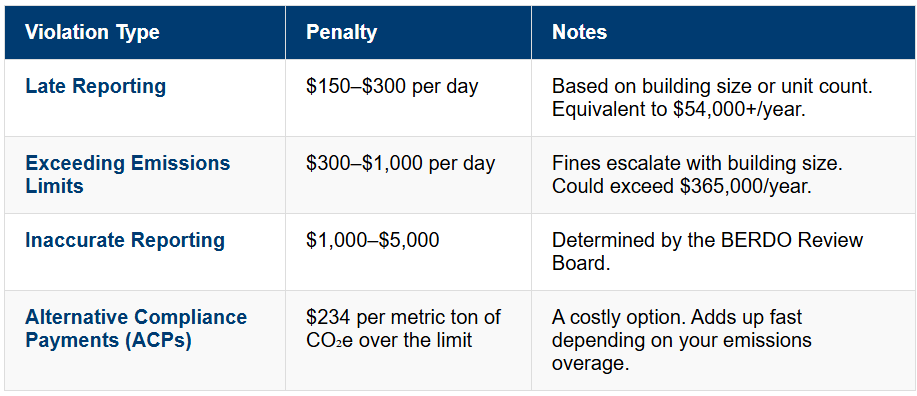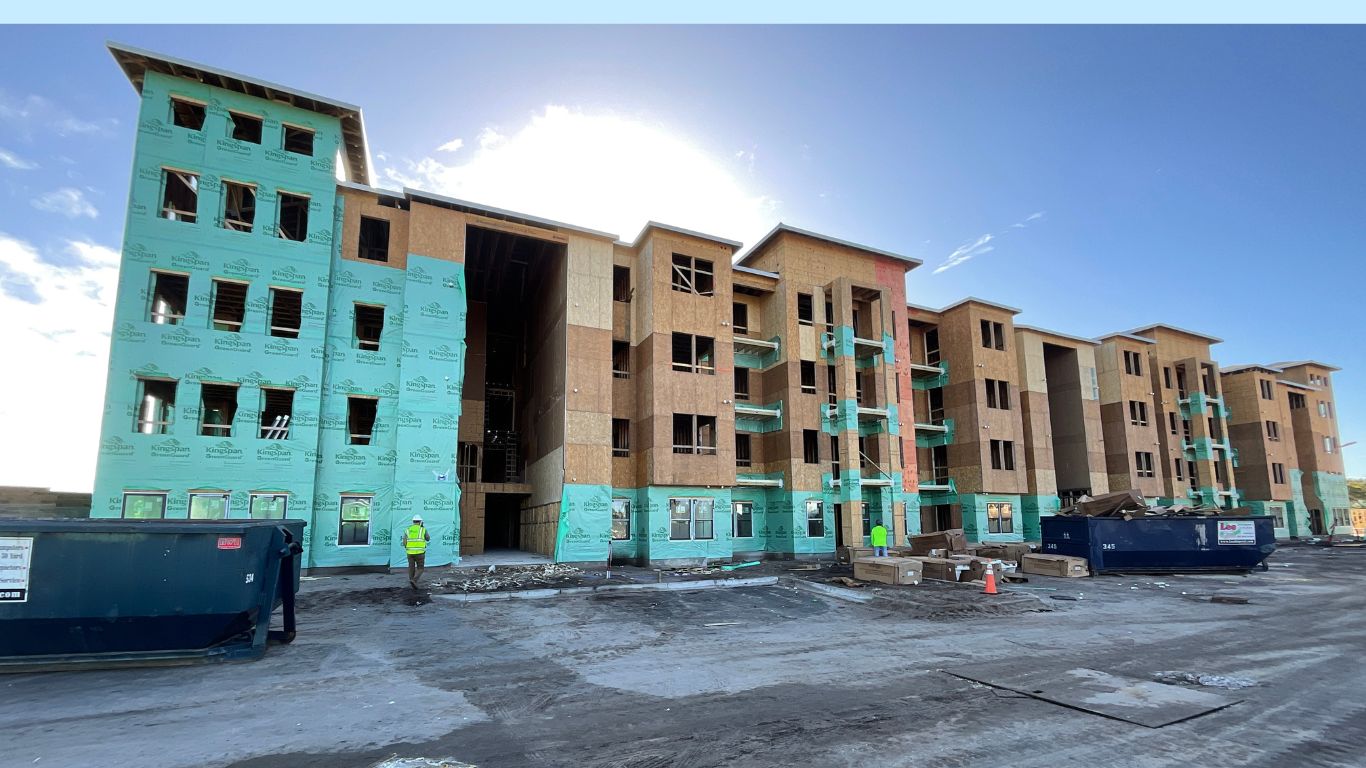Understanding BERDO: What Boston Building Owners Need to Know

Boston BERDO Compliance: A Guide for Building Owners
Boston’s Building Emissions Reduction and Disclosure Ordinance (BERDO) is designed to help the city achieve carbon neutrality by 2050. To meet that goal, large buildings must monitor, report, and reduce their greenhouse gas emissions over time. For building owners and property managers, compliance is essential to avoid penalties and protect asset value.
Failing to comply with BERDO isn’t just a regulatory issue—it can become a serious financial burden. The City of Boston enforces a tiered penalty system that, over time, could result in tens or even hundreds of thousands of dollars in fines annually. Understanding the full scope of these potential costs is key to making timely, informed decisions.
Key Requirements and Penalties Under the BERDO Ordinance
BERDO applies to both residential and non-residential buildings that are 20,000 square feet or larger, as well as to properties located on a campus where the total combined square footage meets or exceeds that threshold. Consequently, owners of these buildings are required to report their energy and water usage annually to the City of Boston. Furthermore, this data is made publicly available, thereby promoting greater transparency and accountability in building performance.
However, reporting is only the first step. In addition to data submission, BERDO also enforces emissions standards and requires energy efficiency improvements through recurring assessments every five years. As a result, non-compliance can be costly—buildings may incur fines of up to $300 per day for failing to report energy and water usage, and up to $1,000 per day for not meeting emissions standards.
Key Compliance Requirements:
-
Annual Reporting: Owners of non-residential buildings 20,000 square feet or larger, and residential buildings with 15 or more units, must report their annual energy and water usage to the City of Boston by May 15 each year.
- Emissions Standards Compliance: Starting in 2025, buildings must meet specific emissions standards that become more stringent over time, with the ultimate goal of achieving net-zero emissions by 2050.
Penalties for Non-Compliance:
-
Reporting Requirement Fines: Failure to submit the required annual reports can result in fines ranging from $150 to $300 per day, depending on the building’s size or number of units. While that may not sound extreme at first glance, the costs add up quickly. For instance, a six-month delay could total $27,000 to $54,000 per year.
-
Emissions Standards Fines: Buildings that exceed established emissions limits may incur fines between $300 and $1,000 per day, also based on building size or units. Over the course of a year, that amounts to $109,500 to $365,000—a massive potential cost.
- Inaccurate Reporting Fines: Submitting inaccurate or false information can lead to penalties ranging from $1,000 to $5,000, as determined by the BERDO Review Board. While this may seem like a smaller fine compared to others, it reflects poorly on operational oversight and may lead to additional scrutiny.
Alternative Compliance Payments (ACPs):
For building owners unable to meet emissions standards, ACPs offer a legal workaround—but at a steep price. These payments are set at $234 per metric ton of CO₂e over the limit, which can result in tens of thousands of dollars annually, depending on the building’s performance gap. While allowable, ACPs are not meant to be a long-term solution and should be viewed as a last resort.
To help visualize the potential cost of non-compliance, here’s a quick breakdown of the fines outlined under BERDO:
How Hillmann Can Support Your BERDO Compliance Journey
At Hillmann, we offer a full range of energy consulting services to help building owners and managers navigate BERDO regulations with confidence and clarity. Our approach is built on expert insight and practical action.
We offer:
- Benchmarking: We compare your building’s performance against industry standards and local peers.
- ASHRAE Level 2 Energy Audits: In-depth assessments to identify actionable efficiency improvements.
- Customized Action Plan Development: Tailored strategies to help meet emissions reduction targets.
- Implementation & Follow-Up Support: Hands-on guidance through the entire compliance cycle.
Avoid Six-Figure Fines | Get Started With a BERDO Compliance Plan Today
Hillmann Can Help!
With decades of experience in energy consulting and a deep understanding of municipal energy ordinances, The Hillmann Family of Companies is a trusted partner in helping clients achieve compliance without disruption. Our team of specialized experts ensures you stay ahead of regulatory deadlines—while optimizing your building’s energy performance.
Let’s Get Started
If your building is subject to BERDO requirements, don’t wait to act. Avoid costly fines and take the first step toward energy compliance today. Contact us to learn more.
The Hillmann Family of Companies
Discover our diverse family of companies, united by innovation and driven by a commitment to excellence. Together, we’re making a better future for all the communities we touch.




